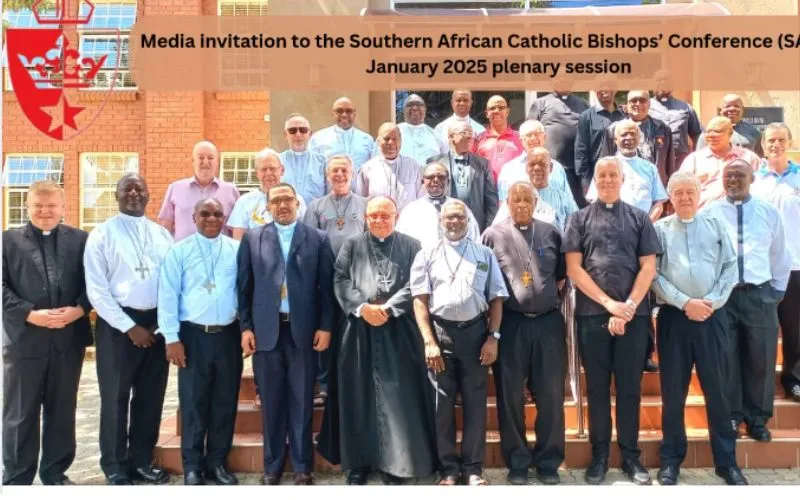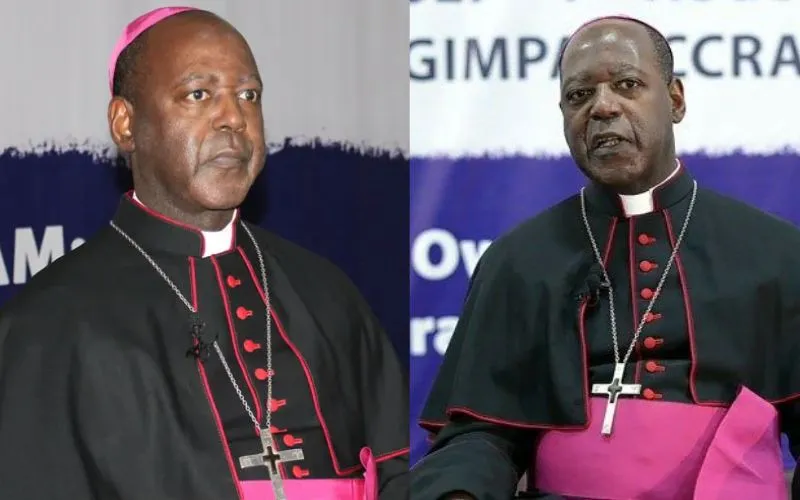Archbishop Mpako is said to have urged the Clergy in the SACBC region to find motivation in implementing the Synod on Synodality, recommending that each Diocese establishes a team to lead the process.
“The SACBC cannot enforce the recommendations but will rely on local bishops and dioceses for success. Our role is to animate and, where necessary, provide workshops,” he is quoted as saying in the Fr. Sebothoma January 28 report.
The Catholic Archbishop of Pretoria is said to have noted that the recommendations and proposals from the Synod must be implemented at the local church level.
“The Vatican oversees and animates the global implementation, but each parish, small Christian community, and sodality must take up the challenge. Our priests, as catalysts, must lead and enable the faithful to engage fully in this mission,” he is quoted as saying.
In the Plenary Assembly, Catholic Bishops in Botswana, Eswatini, and South Africa reportedly also spoke at length about other issues such as the place of ecumenism and interreligious dialogue in the region, the role of the Catholic media, the youth and the Church’s 2025 Jubilee Year, as well as importance of digital missionaries and social justice in the region.
(Story continues below)
On ecumenism and inter-religious dialogue, SACBC members reportedly asserted their recognition of the importance of ongoing formation and education, while acknowledging challenges such as identity preservation and historical tensions.
Cardinal Brislin acknowledged that South African society remains segregated along racial and ethnic lines, and urged the Church to foster a spirit of unity and care for one another, according to the report that Fr. Sebothoma compiled.
The Local Ordinary of Johannesburg Catholic Archdiocese is also said to have praised the service of Catholic media, calling for greater collaboration while respecting diversity in identity and vision. “The Jubilee Year presents opportunities for us to work together and bring hope while constructively challenging each other,” he is quoted as saying.
Cardinal Brislin is said to have highlighted the importance of digital missionaries, urging investment in programs that empower the youth to evangelize through social media. He is quoted as saying, “We need to formalize and develop structured programs for digital missionaries.”
South Africa’s newest Cardinal, who started his Episcopal Ministry in January 2007 reportedly confirmed SACBC’s support for a mini–World Youth Day, acknowledging the financial burden of previous events such as the one in Durban.
Reiterating the Cardinal’s appreciation of the progress made by young people within the SACBC region, Archbishop Mpako expressed his admiration for the Youth Commission of the Archdiocese of Pretoria, which he reportedly said had independently developed a Jubilee Year youth program and organized a trip to Rome.
“Already, 36 young people have booked their tickets and accommodation, and they have invited others from different dioceses to join,” Fr. Sebothoma’s January 28 report has Archbishop Mpako saying, and urging all local churches to encourage youth participation.
The South African Catholic Archbishop is said to have suggested that SACBC members explore ways to support this effort at the conference level.
ACI Africa was founded in 2019. We provide free, up-to-the-minute news affecting the Catholic Church in Africa, giving particular emphasis to the words of the Holy Father and happenings of the Holy See, to any person with access to the internet. ACI Africa is proud to offer free access to its news items to Catholic dioceses, parishes, and websites, in order to increase awareness of the activities of the universal Church and to foster a sense of Catholic thought and culture in the life of every Catholic.





